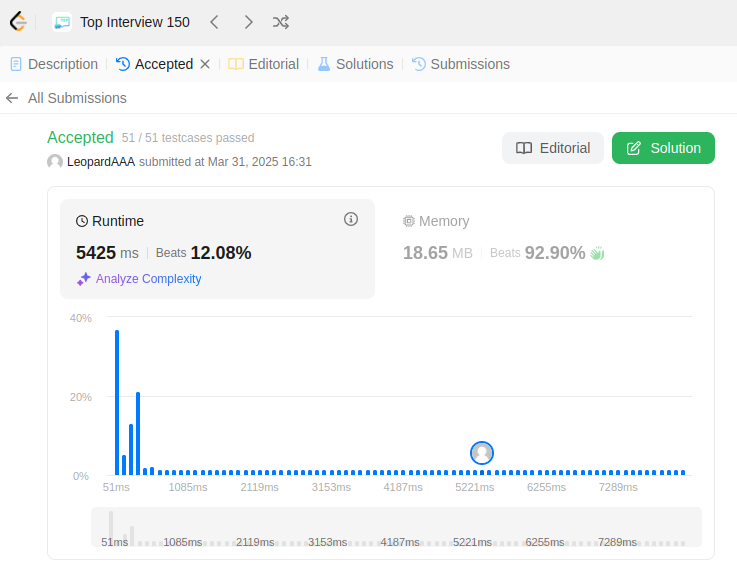A transformation sequence from word beginWord to word endWord using a dictionary wordList is a sequence of words beginWord -> s1 -> s2 -> ... -> sk such that:
- Every adjacent pair of words differs by a single letter.
- Every
sifor1 <= i <= kis inwordList. Note thatbeginWorddoes not need to be inwordList. sk == endWord
Given two words, beginWord and endWord, and a dictionary wordList, return the number of words in the shortest transformation sequence from beginWord to endWord, or 0 if no such sequence exists.
Example 1:
Input: beginWord = "hit", endWord = "cog", wordList = ["hot","dot","dog","lot","log","cog"] Output: 5 Explanation: One shortest transformation sequence is "hit" -> "hot" -> "dot" -> "dog" -> cog", which is 5 words long.
Example 2:
Input: beginWord = "hit", endWord = "cog", wordList = ["hot","dot","dog","lot","log"] Output: 0 Explanation: The endWord "cog" is not in wordList, therefore there is no valid transformation sequence.
Constraints:
1 <= beginWord.length <= 10endWord.length == beginWord.length1 <= wordList.length <= 5000wordList[i].length == beginWord.lengthbeginWord,endWord, andwordList[i]consist of lowercase English letters.beginWord != endWord- All the words in
wordListare unique.
My Solution:
from collections import deque class Solution: def ladderLength(self, beginWord: str, endWord: str, wordList: List[str]) -> int: if endWord not in wordList: return 0 def one_char_diff(word1, word2): for i in range(len(word1)): if word1[i] != word2[i]: return word1[i+1:] == word2[i+1:] if i + 1 <= len(word1) - 1 else True return False queue = deque([(beginWord, 1)]) # (current_word, num_words) while queue: current_word, num_words = queue.popleft() if current_word == endWord: return num_words a = wordList[:] for word in a: if one_char_diff(current_word, word): queue.append((word, num_words + 1)) wordList.remove(word) return 0





 浙公网安备 33010602011771号
浙公网安备 33010602011771号